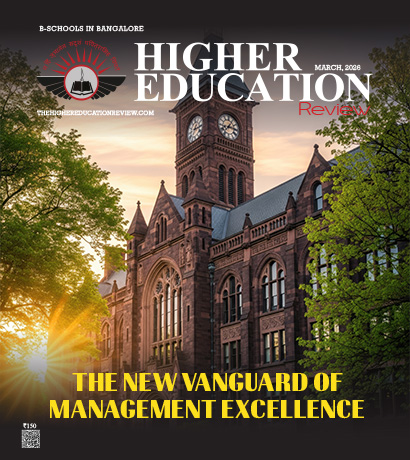IIT-BHU Signs MoU with Taiwan University for Research, Academics

- MoU focuses on IC design, fabrication, packaging, and materials.
- Partnership launches Semiconductor Summer School for global student exchange.
- Collaboration boosts India’s semiconductor ecosystem and eco-friendly manufacturing.
IIT-BHU has entered into an MoU with National Cheng Kung University (NCKU), Taiwan, to promote collaboration and exchange in academic, research, scientific, and technological areas between the two institutions.
The partnership includes research in various domains, focusing on integrated circuit design, semiconductor fabrication technology, semiconductor materials, semiconductor packaging and testing, as well as intelligent and sustainable manufacturing.
The MoU was executed by IIT-BHU director Prof Amit Patra and NCKU dean (semiconductor manufacturing technology) Prof Yan-Kuin Su. After the MoU was signed, an interactive session took place involving NCKU delegates and the faculty and students of IIT-BHU.
The event, named "Interactive Dialogue on Next-Gen Semiconductor Innovation: AISSM @ NCKU Taiwan," included talks and conversations about the goals of the Academy of Innovative Semiconductor and Sustainable Manufacturing, cutting-edge semiconductor research, and its worldwide effects.
It also launched the Semiconductor Summer School initiative, emphasizing its course offerings, eligibility criteria, and potential partnerships, ending with a Q&A session and networking on trends, innovations, and collaboration opportunities in semiconductor technology.
Also Read: IIT Hyderabad Launches VLSI Chip Design Course with TCS iON
This partnership is anticipated to create new opportunities for IIT-BHU students and researchers to achieve international exposure, utilize advanced lab facilities, and engage in collaborative research projects of global significance.
By focusing on sectors such as semiconductor design and eco-friendly production, the MoU supports India’s goal of enhancing its semiconductor ecosystem and decreasing reliance on imports. The program will promote cultural exchange and the sharing of knowledge, allowing academics from both organizations to gain from varied viewpoints.

